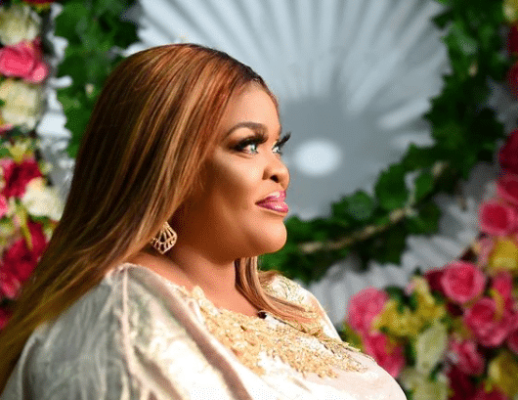
Netflix has our lips and the media buzzing after the release of one of its new Korean Based series “Squid Game”. Hitting number 1 in the streaming service around the world, is a sign that a large percentage of individuals are raving for the show for untold reasons which has led many to assume and misconstrue the time given to watch the series as being “peer pressure”.
[ad]
Undeniably, there is pressure, perhaps based on curiosity and other options, to understand the trending pop culture referencing of Squid Game. Whatever the case may be for you, watching the film does not cause a catastrophic volcanic eruption when you do so “peer pressure”.
However, the volcanic eruption occurs upon reflection, questioning and relation of the series to one’s predicament and immediate society.
Imaginably, it is safe to say this was the starting point for Nigerians and is the case with masses of people able to identify collectively with Squid Game. This was done through inclusionary and relevant characters that mirrored acceptable and unacceptable ideals and forms of human behaviors. Hwang Dong-hyuk did not know he was not just reflecting the political, social and economic situation of Korea but also Nigeria.

Beginning with the obvious, the imagery in “Squid Game” is a blunt truth told in a rather bloody manner. Nevertheless, it has got nothing on Quentin Tarantino’s style. And for this palpable element of sheer greed that translates into blood spilling that many frown at, it is far from it or the intention of the director.
Supposedly, that may have been the turn off that sprung the heap of turn downs and the backlash that the director received on his journey to share his ingenious work. Regardless of the challenges, such as the meaning being lost in transliteration, it is still mind-boggling to many fans and critiques, leaving them in a state of awe as Aristotle would like the purging of emotions.
The nostalgic childhood days, fun-filled with outdoor games, is juxtaposed with a failure stricken adult life based on societal interpretation, which then makes individuals bring out the animal instincts of survival, leaving the innocent childhood tainted by guilt-ridden and selfish acts.
[ad]
For this reason, it is found disturbing for its infusion of death and blood spilling parallel to the childhood experience. Clearly, there is no elusiveness with this K-series.
Subsequently, the thematic preoccupations of the series are not farfetched from what Nigerians discern as their present realities, hence fuelling the buzz in the country and the swift figurative identification of this creative work by the creator/director Hwang Dong-hyuk. Thus leading up to an overnight sensation for many Nigerians and the flourishing appreciation of Hwang Dong-hyuk work as it inadvertently highlights the atmosphere of Nigeria.

The treachery, as depicted, is inhumanly uncanny, but then again it displays the figurative and surface levels of interactions and the daily struggles of every being. Here and now brings our trajectory to the impact, meaning and intentions of Squid Game in the Nigerian scene.
The series examines how humanity has thrown the caution of morals to the wind in a bid to amass wealth at the expense of other people (players). Player 1, in lieu of that section of humanity, has lost hope that there is any good human and player 456 is a symbolic character of a man with faith that there is still one good person left in humanity, which he is an example of.
On the other hand, the series, Squid Game, is beyond the bloodshed, which lured many Nigerians to have been able to tap into. Nigerians were able to promptly relate the series beyond the mere cinematographic appeal and approach with instantaneous metaphorical connection to it by being able to point out intricate elements of “Squid Game”.

For instance, they have been able to relay symbols from the game to the Naira. This work of art has been another awakening for Nigerians after #Endsars as they have deeply awakened to their realities of plight, devalue of the Naira and the current skyrocketing of every existing commodity in the country. Coincidentally, this overlaps in the month of October that has been smeared with hurtful memories from the previous year #Lekkitollgatemassacre.
Therefore, in parallel to that, it was a bloody Squid Game with the masked VIPs behind the scenes calling the shots.
The squid game story tells tales of many deprived Nigerians and the things they have to do driven by the adrenalin of animal instincts, making survival and hustling no joke. To spice up their weary life borrowed in wealth, the VIP’s play the citizens like horses in a betting game, casting their lot on whom they envisage will take the prize money of 45.6 billion won prize. Just like the Netflix series, the Squid Game in Nigeria is not for the faint-hearted as it reflects socioeconomic challenges, but encrusted in children’s games.

Furthermore, this K-series is a hub of symbols, beginning with the emblematic sense of the circle, triangle, and square shapes used in playing. The triangle inside the circle being the squid’s head projects the elite who call the shots; player 1, and like the narrator said, “at that moment I felt as if I owned the entire world”.
Hence, the shapes represent different social classes in society, with the masses as the square. Such events are applicable in Nigeria, with those in authority wielding their power on the citizens like a game of chess, controlling people to act in ways they want them to.
In recent times, the series has been a conversation starter, making its way to join in the pop culture references of K-series. Critics imply that the violence displayed is frank, but again it mirrors the same violence humanity metes out to each other in a quest to triumph where we throw others under the bus as seen by several players in the game who are in a dilemma. The prime suspect for all this deceitfulness is the translucent golden bubble piggy bank and, like other representation, is a potent symbol of achievement.
Being unabashed, the show boldly addresses troubling issues submerged in the belly emanating from society in a certain geography (Korea). Poignantly, it does the same Nigerians who bond extra, particularly on the flip side with the use of the symbolic colours green-white-green through the players’ uniformed track suits, echoing why they can splendidly associate with this distorted children’s game.
With crystal clear intentions, Squid Game probes into human ideals of equality, greed, selfishness, hypocrisy, and vain vanity. The concept of equality is enhanced by giving the players a fair playing field but equality in the game is contrasted with elements of ageism and gender, thus putting players in a disadvantaged position. Further rendering on player 218 shows us that just like in Nigeria, a university degree and a white-collar job are no promise for financial security and other perks attached to it.
Part of the dissension of the ingenious creation is reactions frowning at the director for airing the dirty laundry of Korea, whereas the whole world’s reaction implies that it is full of it. A Korean professor said, “Koreans need to be number one, but number one at the cost of…kind of airing your dirty laundry is somewhat a different thing”.
It also stresses an unambiguous and blunt reality of what Nigerians and people in other parts of the world are going through. It interprets the deeply rooted perception of how failure is perceived through harsh realities of a competitive society that has lost its humanity, but there is still light at the end of the tunnel through the significant player 456.
If not anything, Squid Game resonates with one’s worry free childhood years and from that point, it unravels a dilemma none of the players bargained for. As such, Squid game makes a resounding impact in depicting the social, political and economic situations and events of Nigeria. Just like the faceless VIPs who, like the Nigerian government, represent an entity, the high and mighty constantly hide behind their masks to perpetuate crimes through their authority and power.
The actions of all players are indicative of our animal instincts when in survival mode as we sadly play to the entertainment of these masked VIPs.
In a nutshell, it is a story built on the nostalgic childhood of children outdoor games but sadly smeared by the harsh realities of life where personal battles exacerbate irrational and selfish traits, thus fostering a dog eat dog society. A stroll down the park of outdoor children’s game becoming a metaphorical expression of what society is and situations that exacerbate decisions.
In art, people seek what is relatable to them and many Nigerians have found this work of art “Squid Game” profoundly relatable.
[ad unit=2]








